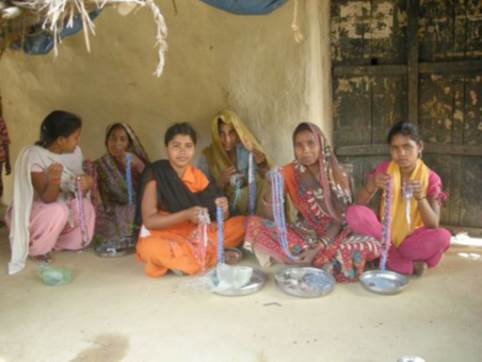|
Conservation linked
Livelihood in D evelopment Alternatives (DA) has been working on providing sustainable livelihood solutions for marginalised communities for the last three decades. Supported by the Turtle Survival Alliance (TSA) and the Gharial Conservation Alliance (GCA), DA undertook a scoping study in the National Chambal Sanctuary located in North India. This study highlighted the need for integrating an innovative livelihoods approach to complement the conservation process. Owing to the close links between the ecosystem and the livelihoods of the local communities, it was imperative to address the needs of the local people by developing ways to conserve biological diversity while enabling the locals to live productively and sustainably.
The economy in the area is predominantly agrarian. However the lack of water availability for irrigation makes agriculture less productive. Illicit activities such as fishing, sand collection and selling of Prosopis juliflora wood are taken up by riparian communities to supplement their incomes. Dependence on these livelihoods in the sanctuary area causes livelihood insecurity for the locals. It also has damaging effects on the riverine ecosystem and the associated wildlife and riparian forests. With the aim of reducing dependence of the local communities on such illicit activities, Development Alternatives facilitated stakeholder consultations to identify and validate potential livelihood options that would enable immediate income genera-tion. Activities such as goat rearing, poultry farming, pisci-culture, food processing, kitchen gardening, horticulture, cultivation of medicinal plants, growing leguminous fodder and grasses to support cattle population, compost making, paper bag making, jewellery making, rope and durrie making were discussed in the stakeholder consultations. Based on the marginalised socio-economic status of the villages in this area, four simple cost effective livelihood options were selected for the pilot demonstration – artificial jewellery making, paper bag making, refining rope products and food processing. To ensure continuous economic development and ecological security in the area, Development Alternatives and Turtle Survival Alliance are now working towards the establishment of a resource centre for conservation-linked livelihoods. The centre will provide a space to explain linkages between conservation and livelihoods and consolidate and scale up efforts in the area to improve conservation of threatened aquatic species. q Sachi Singh
|